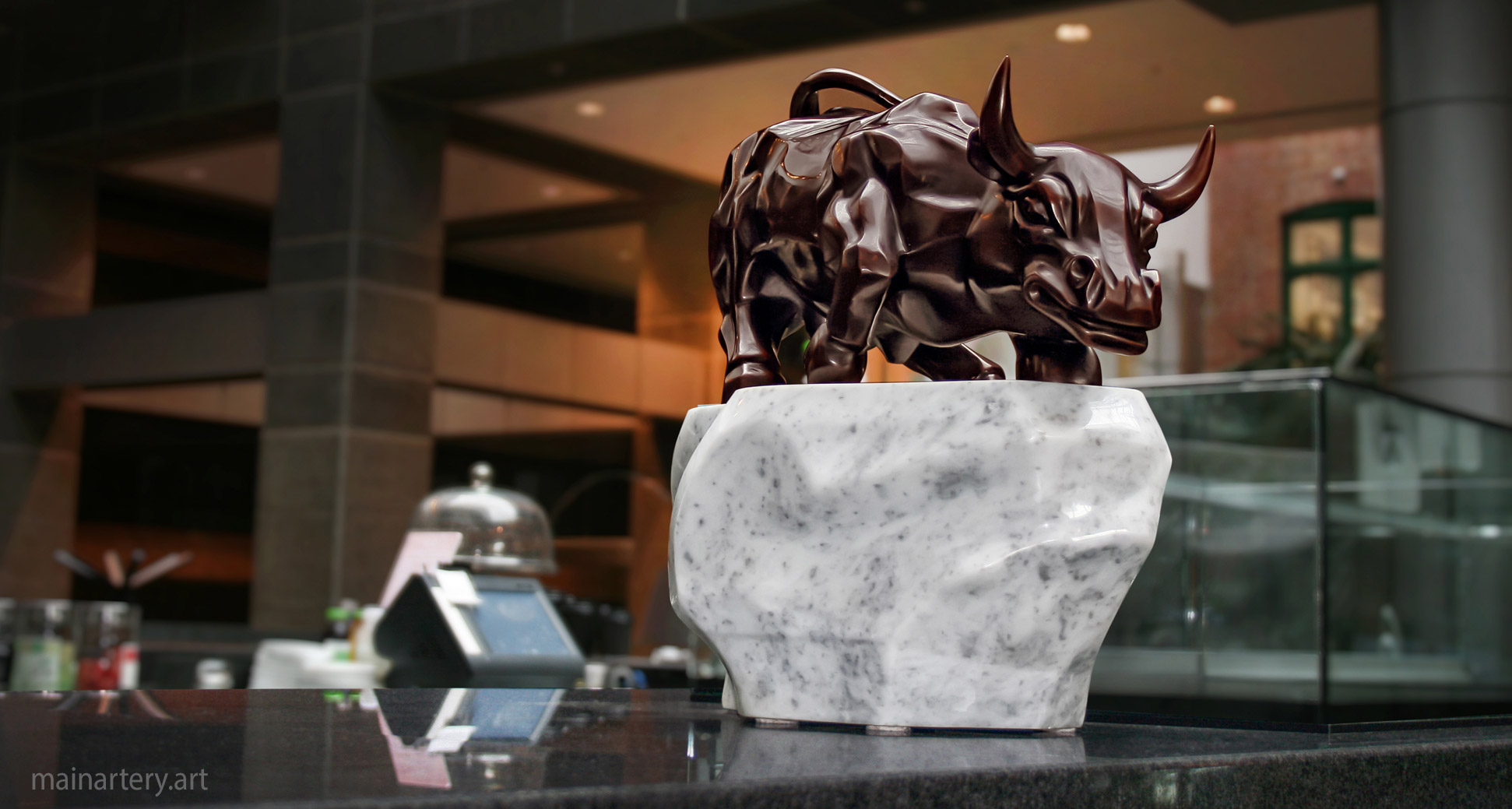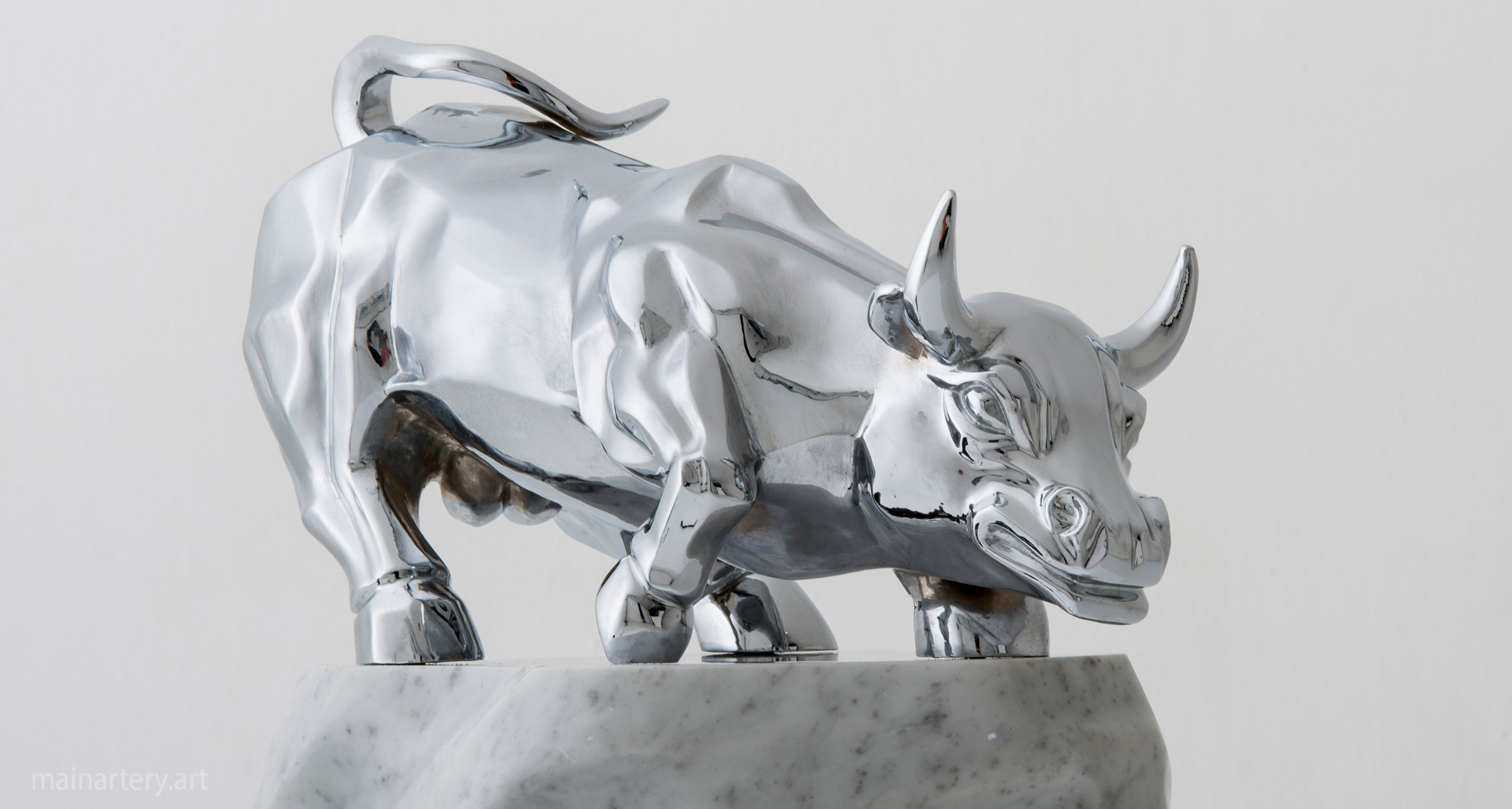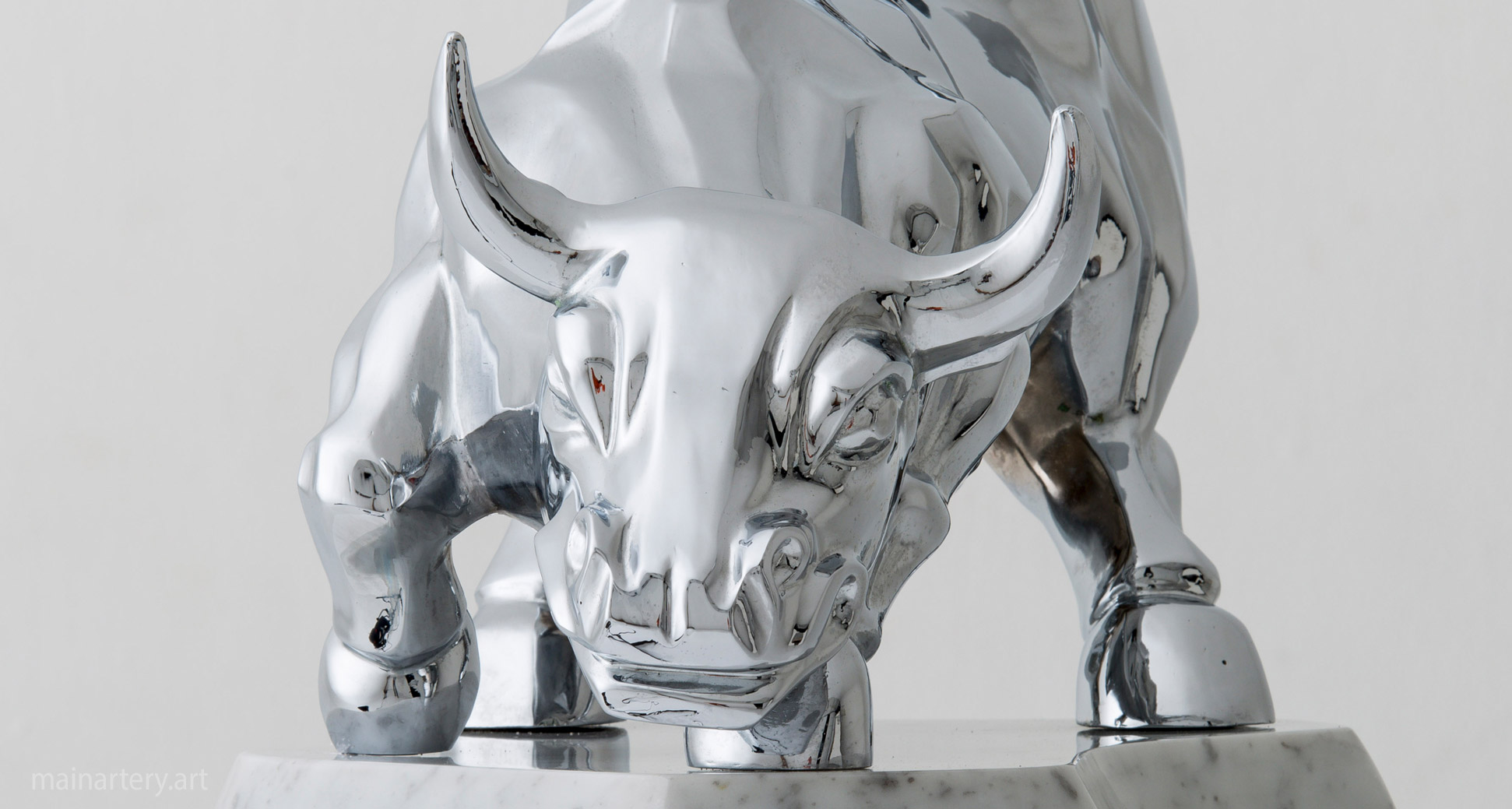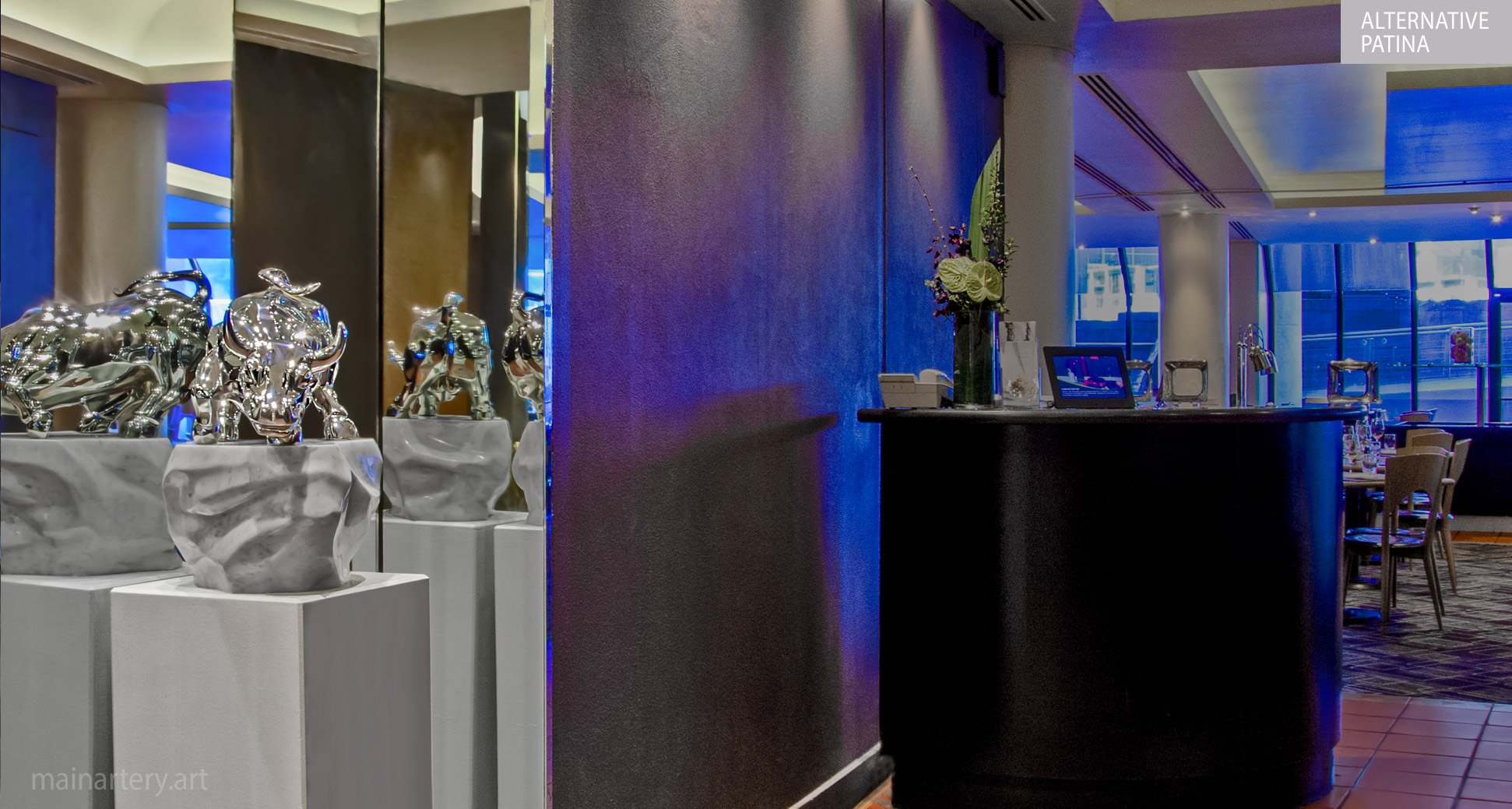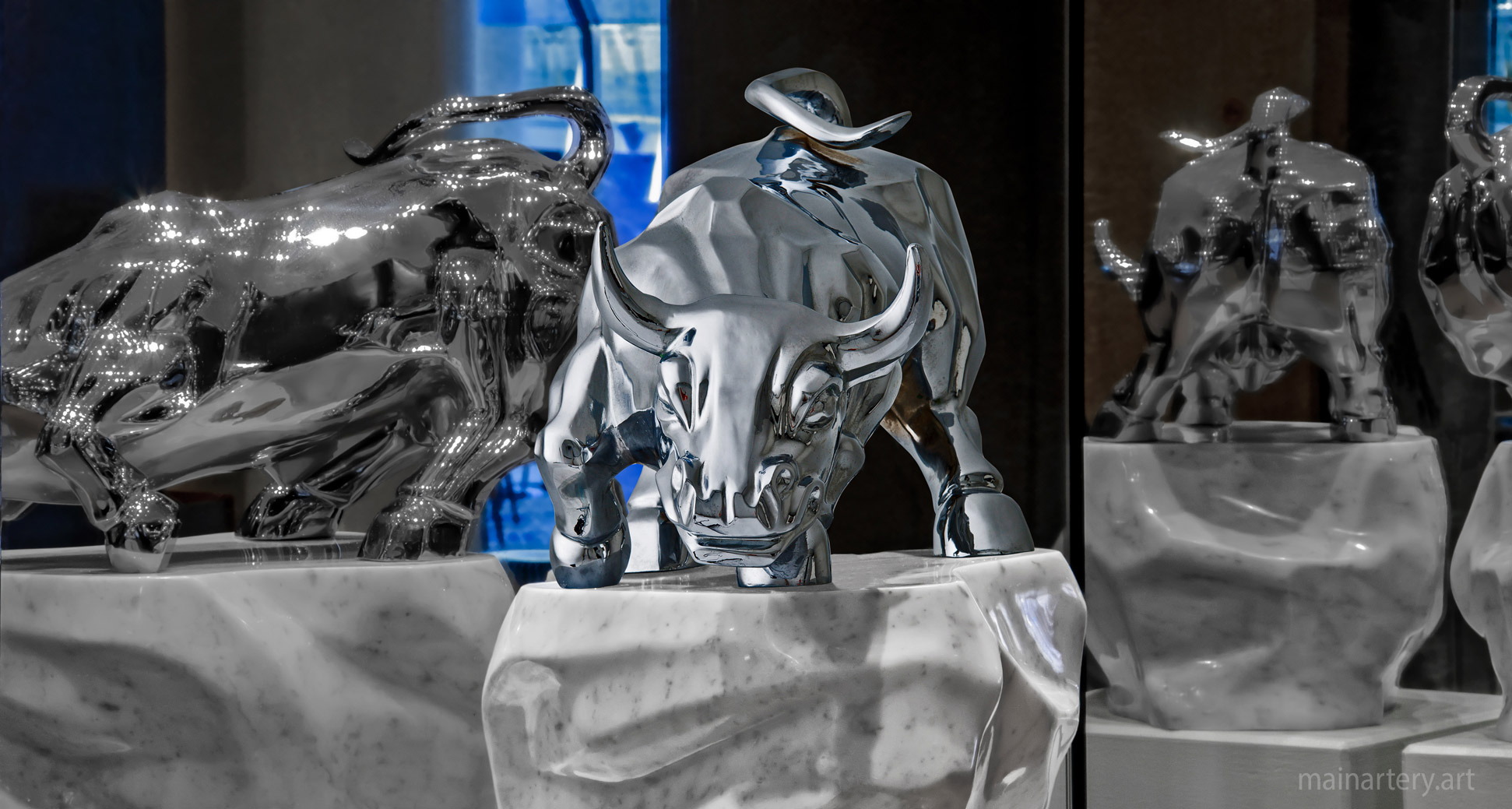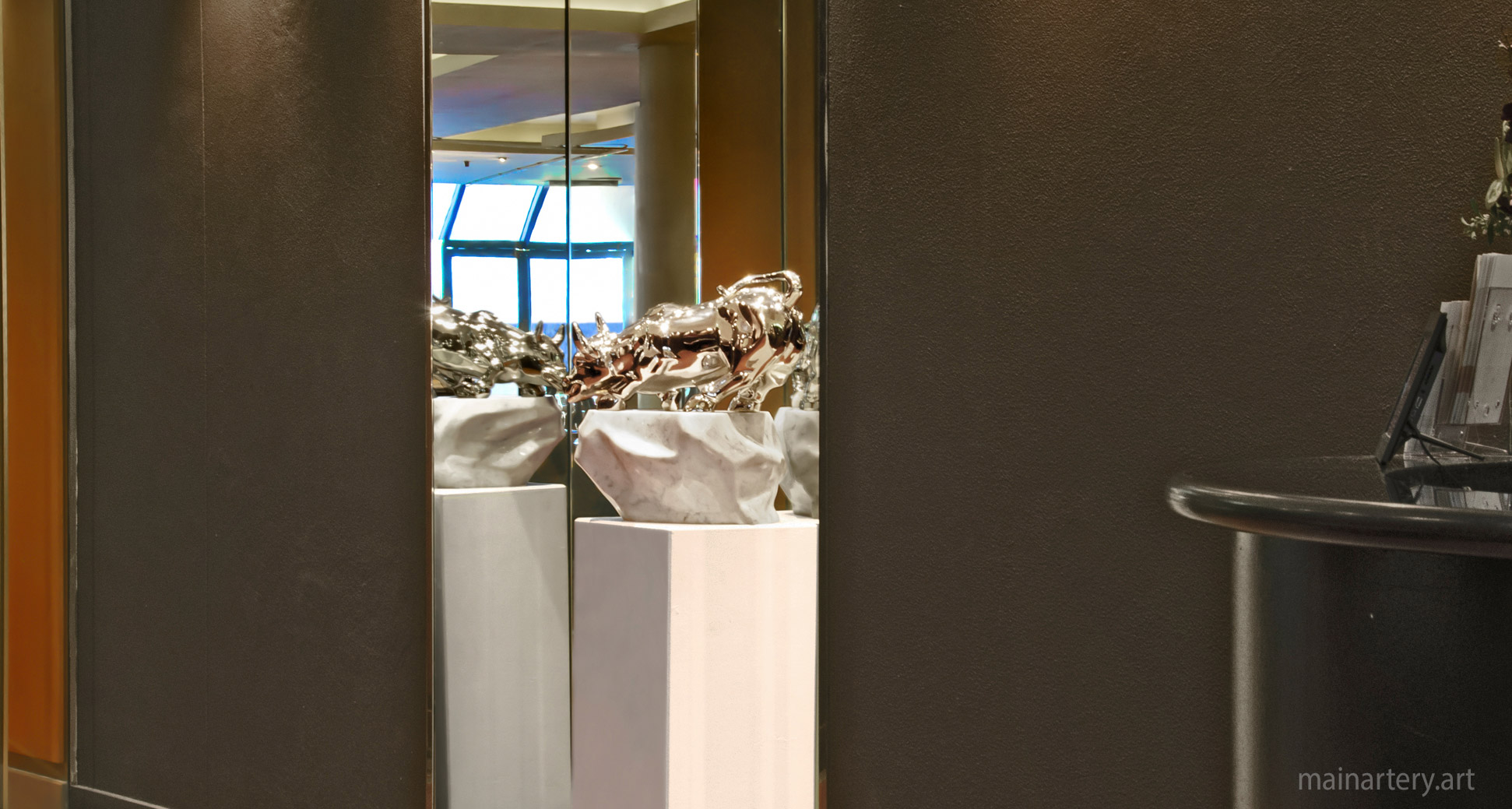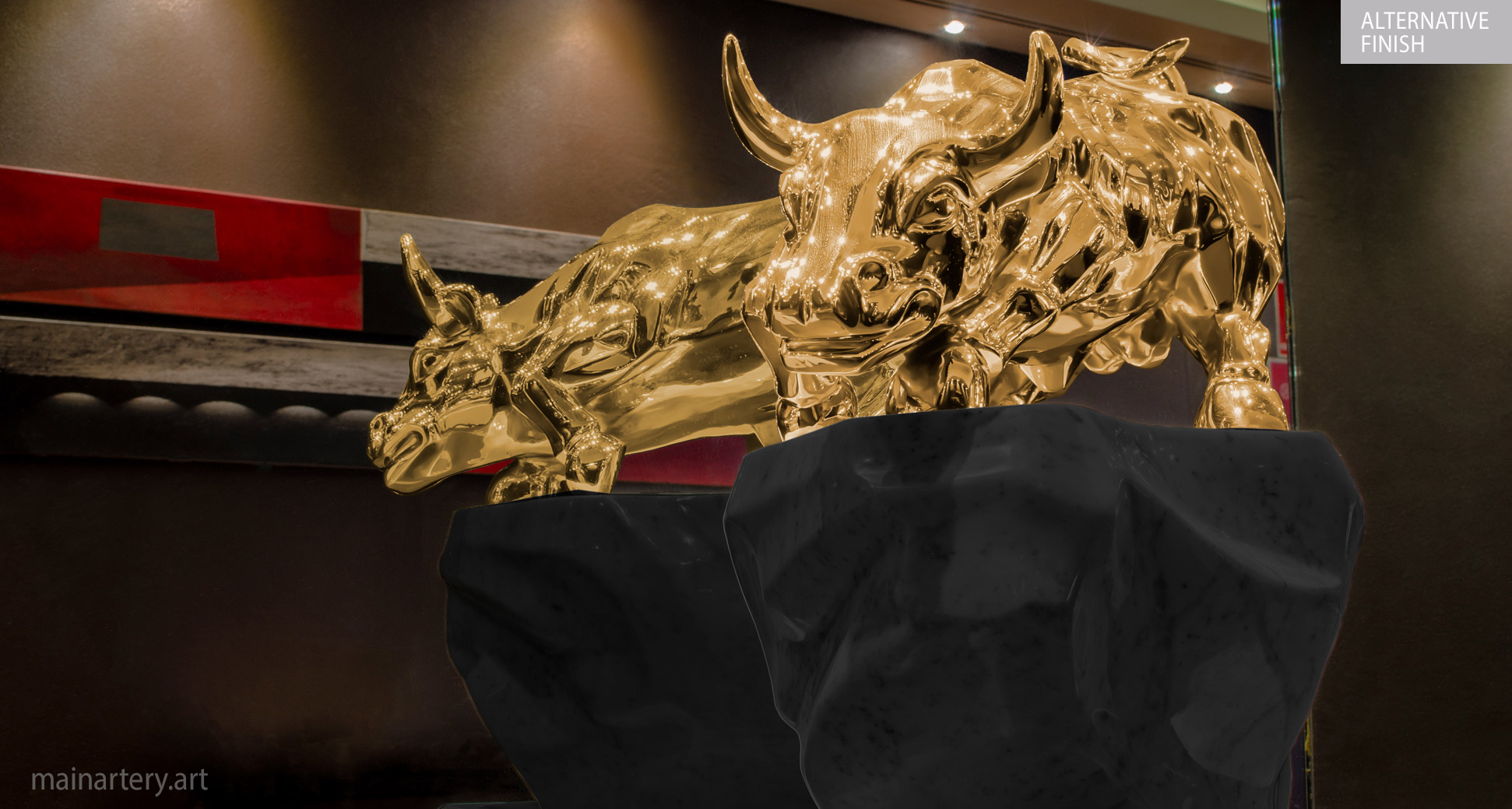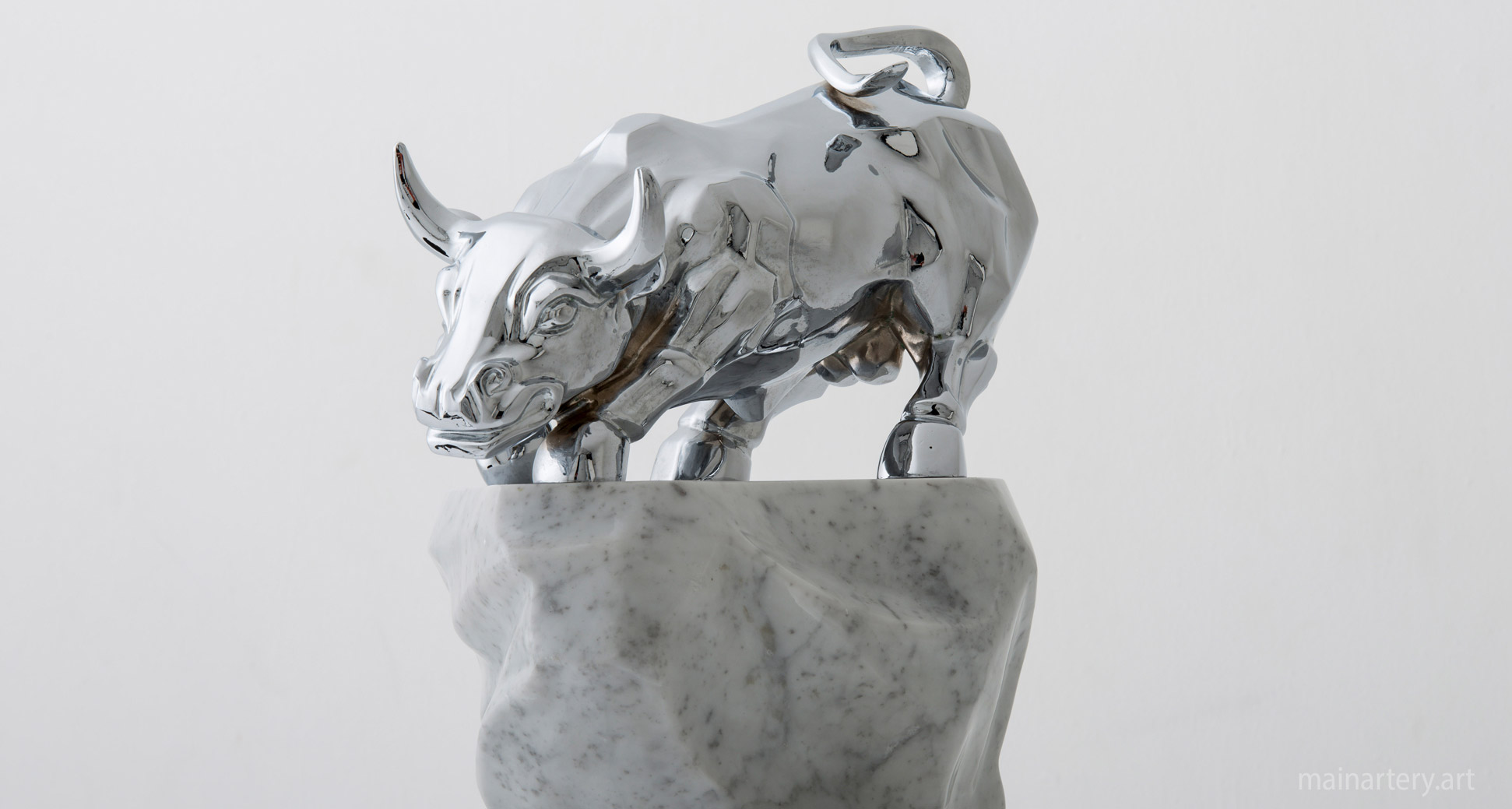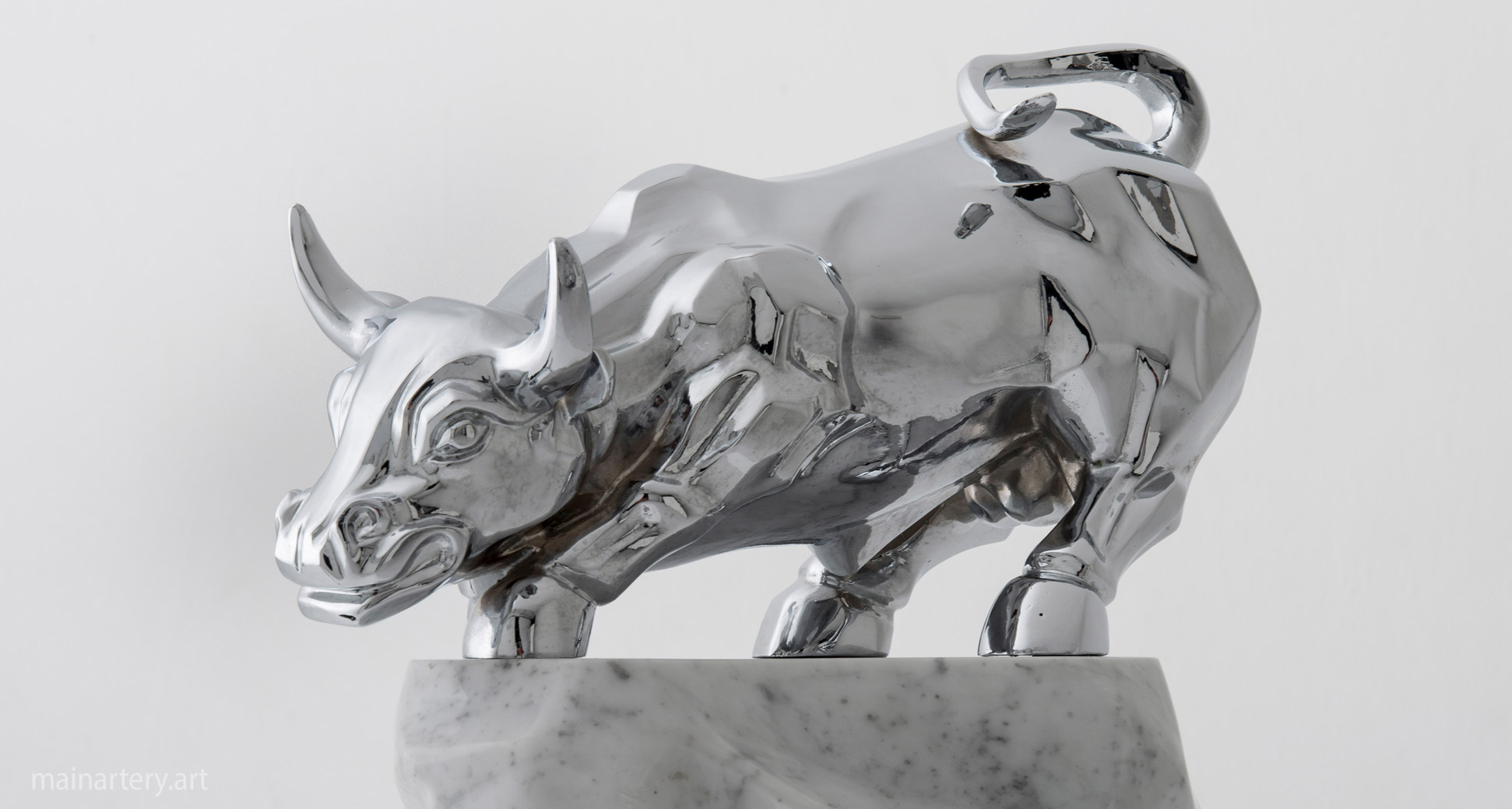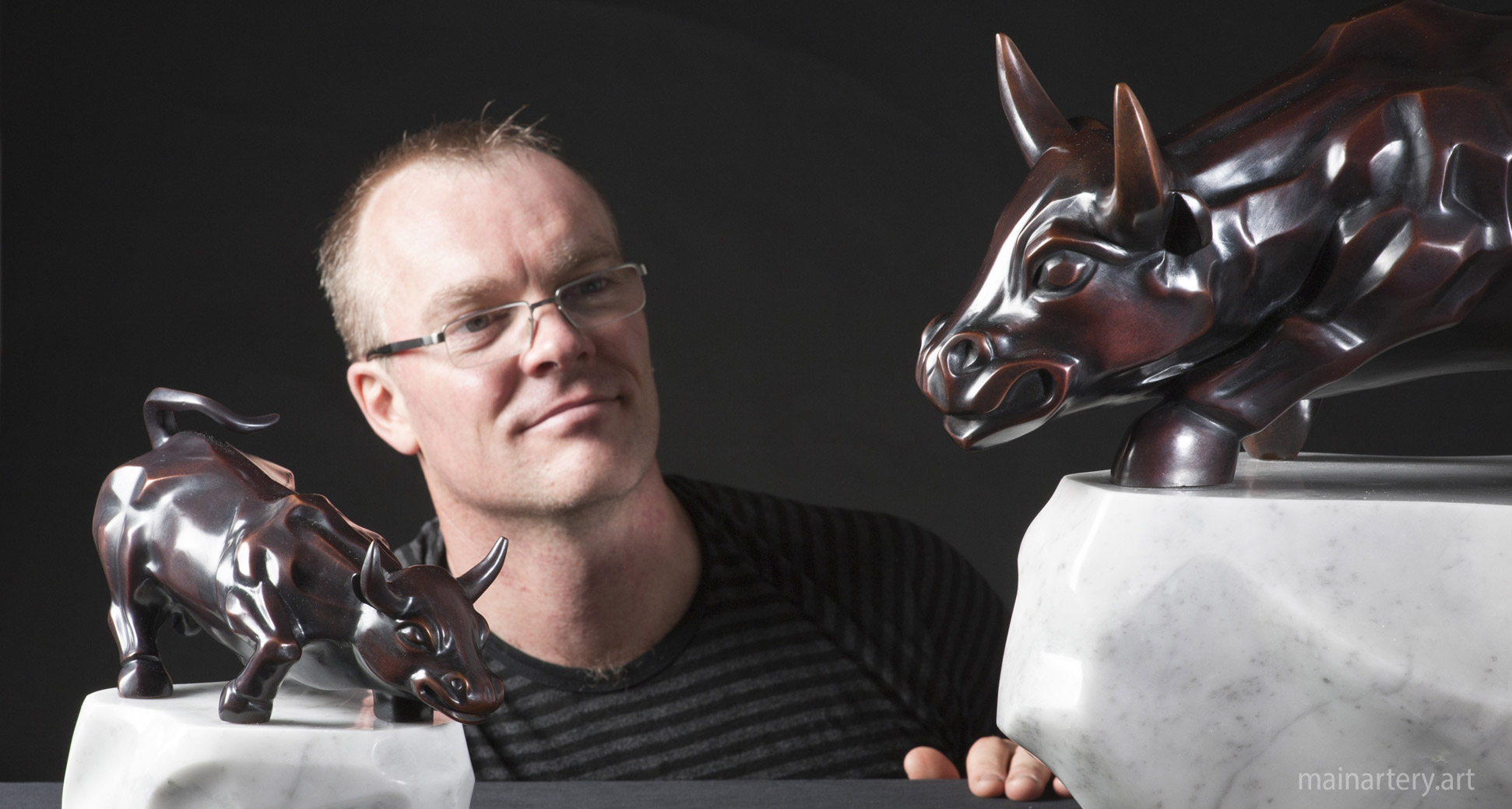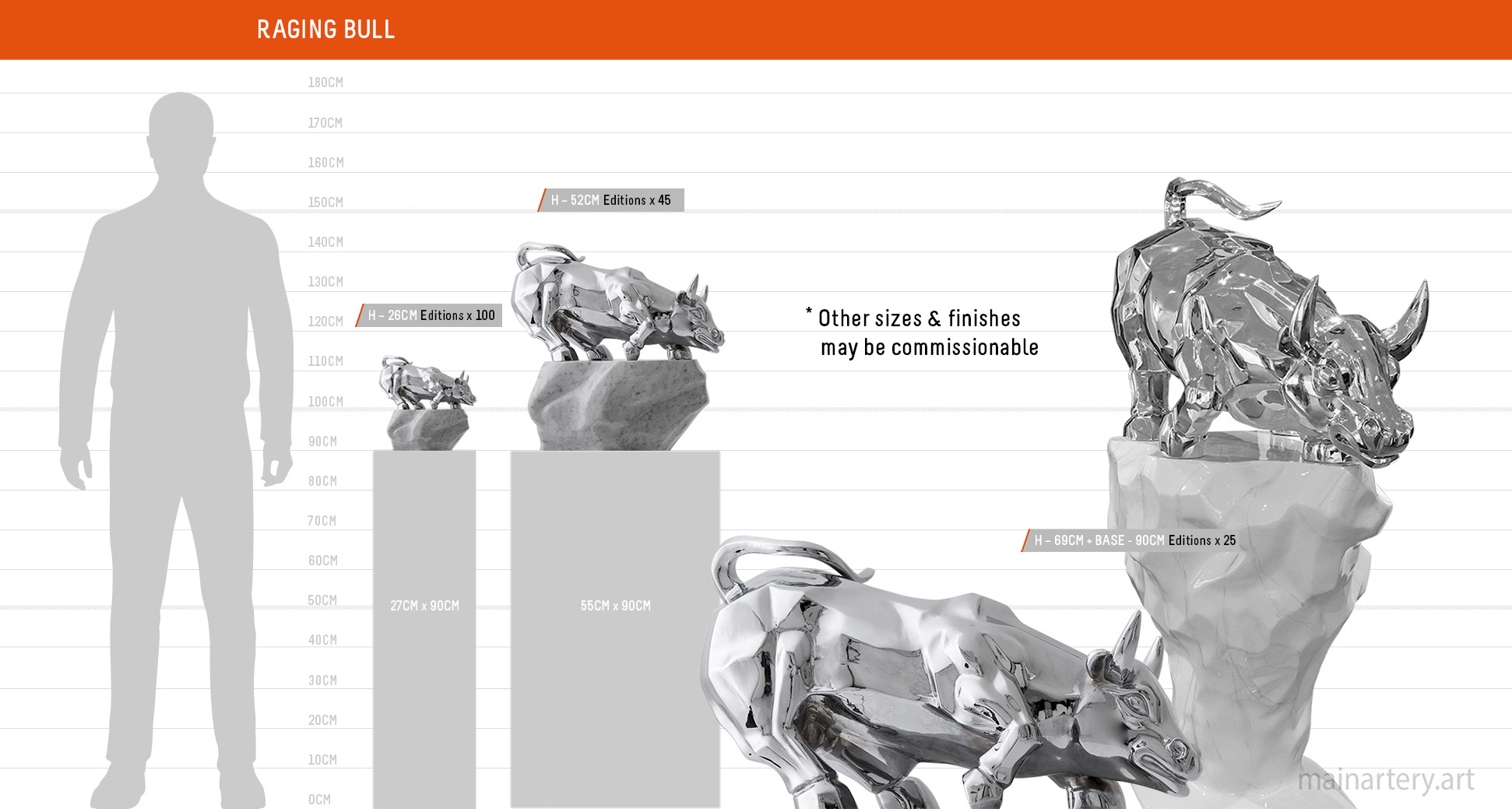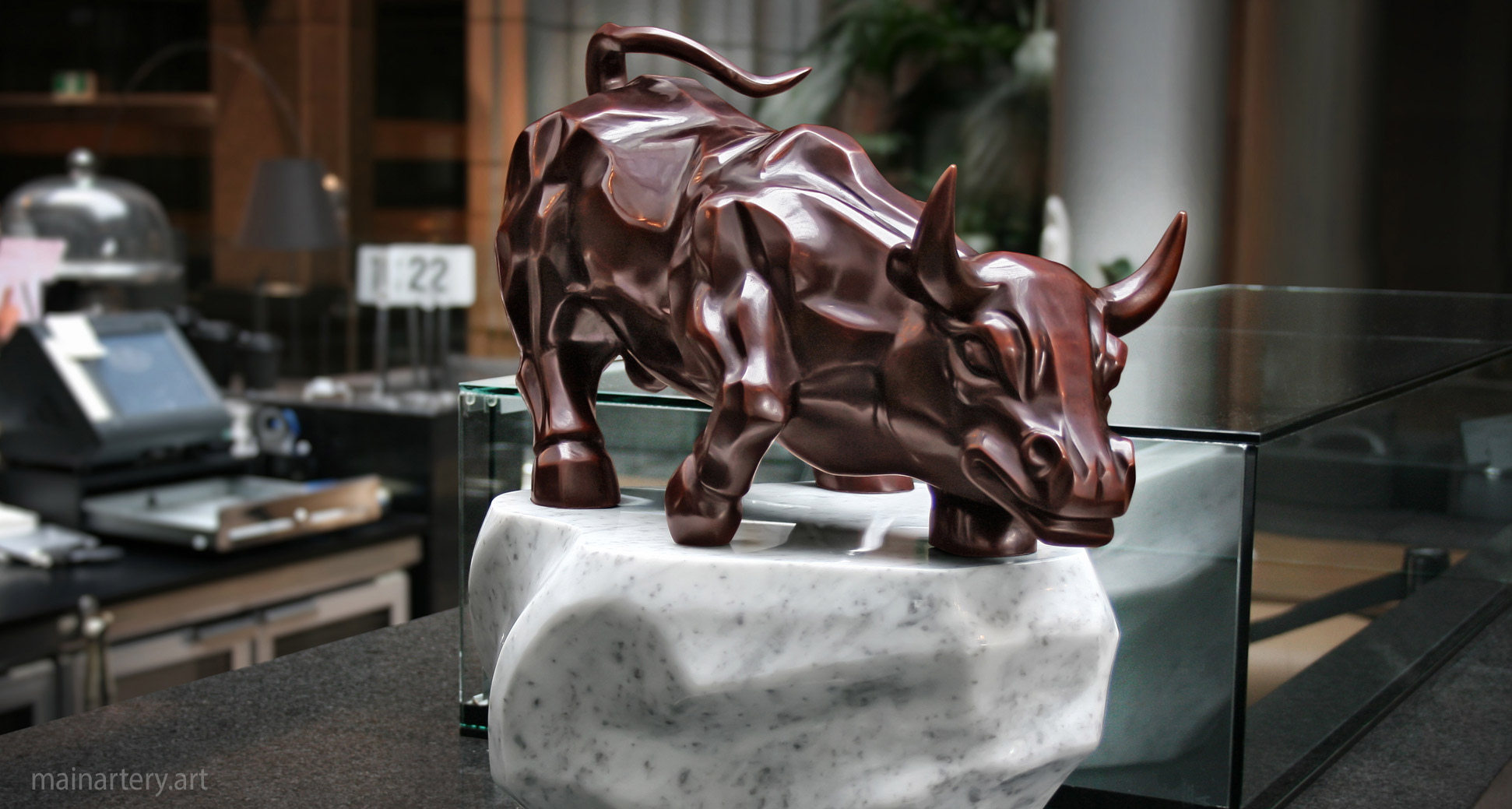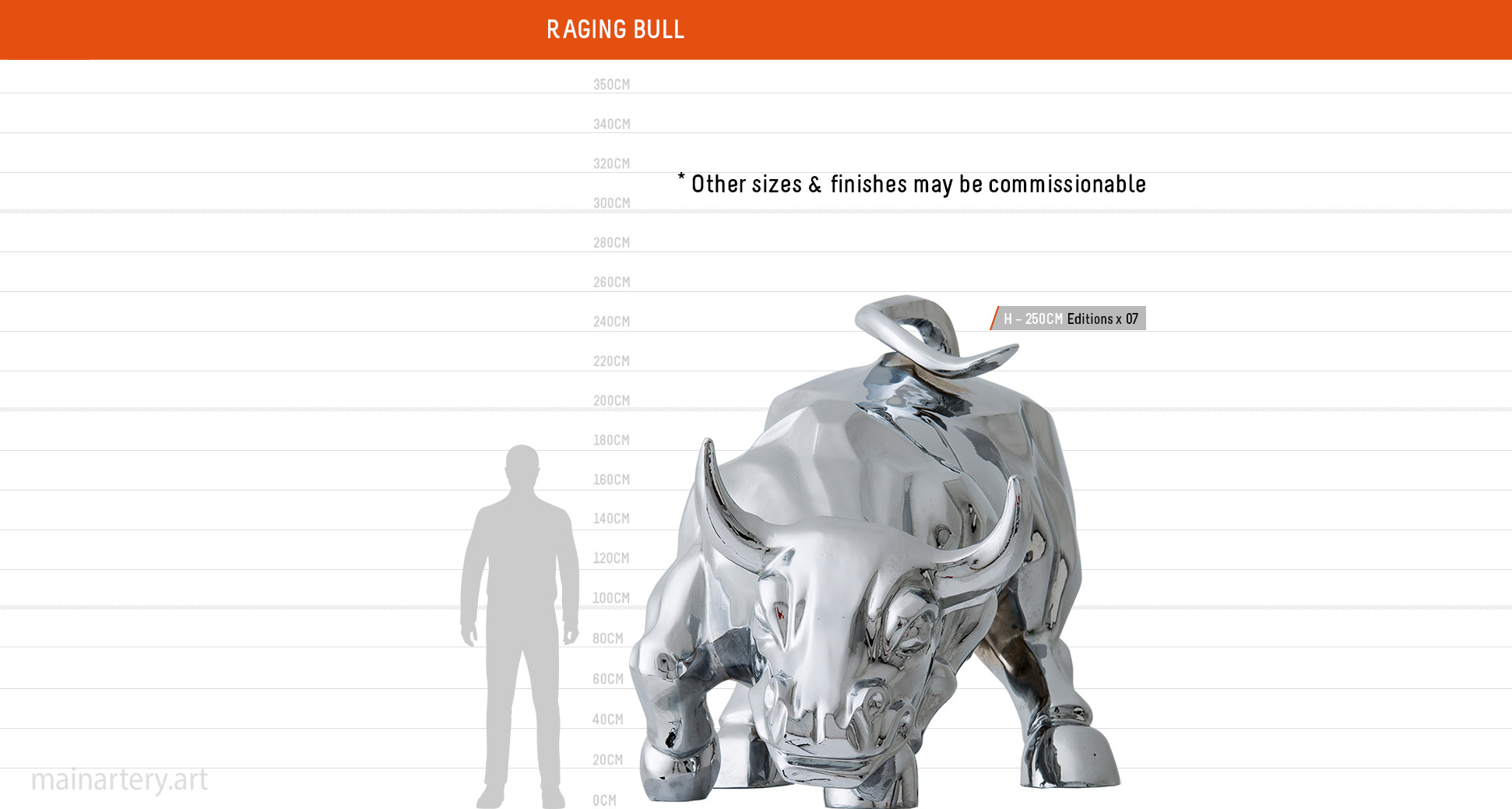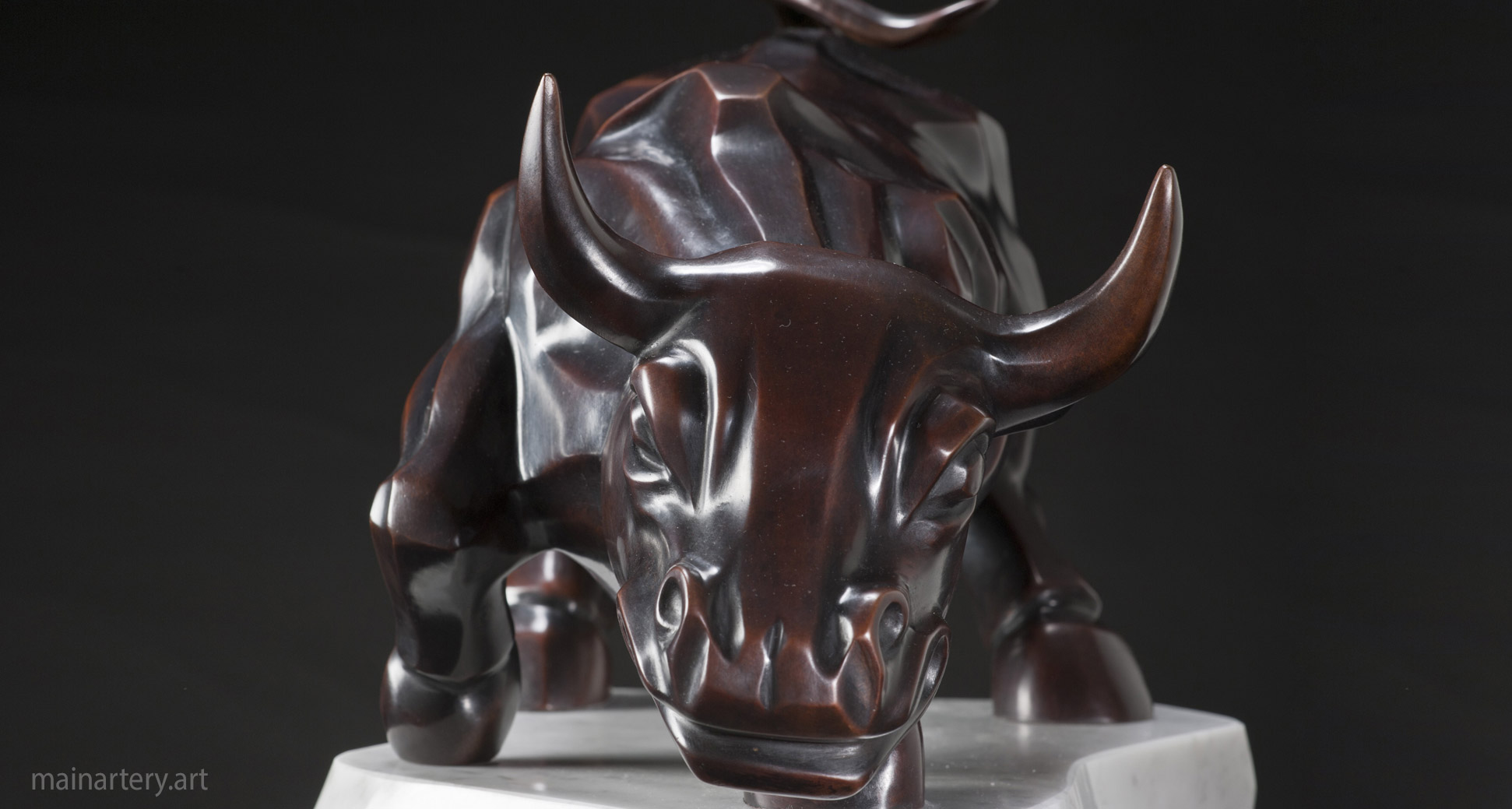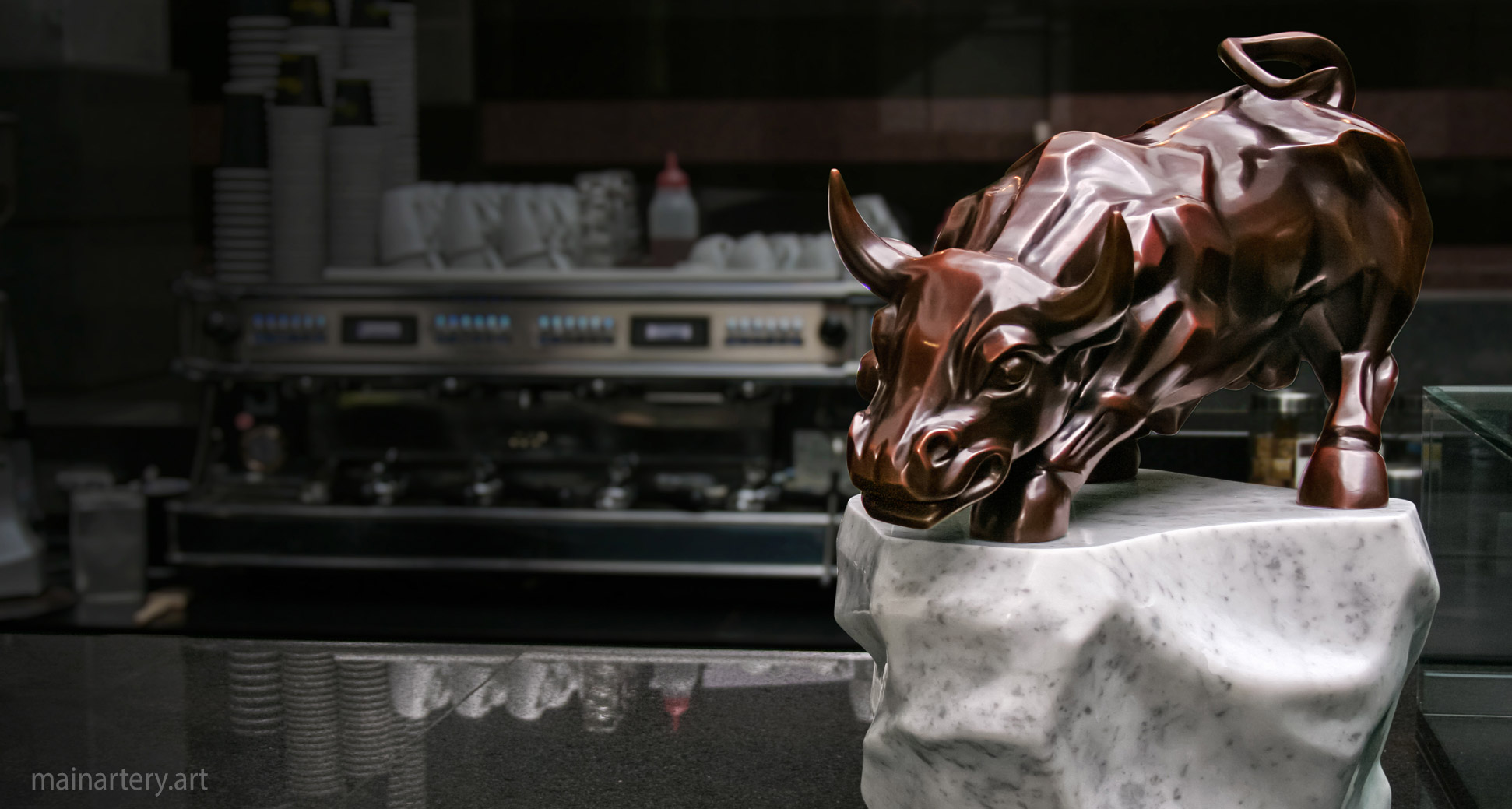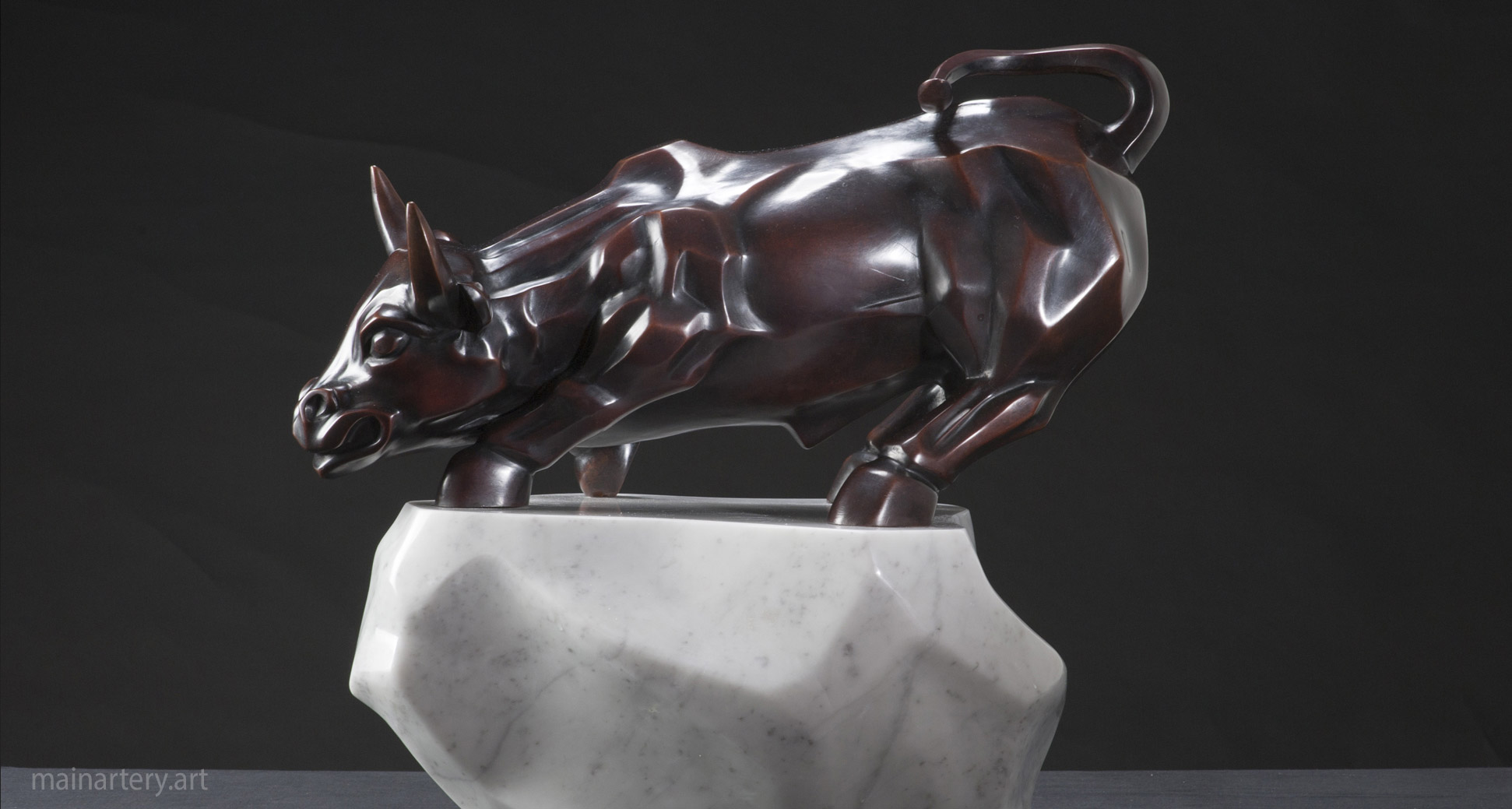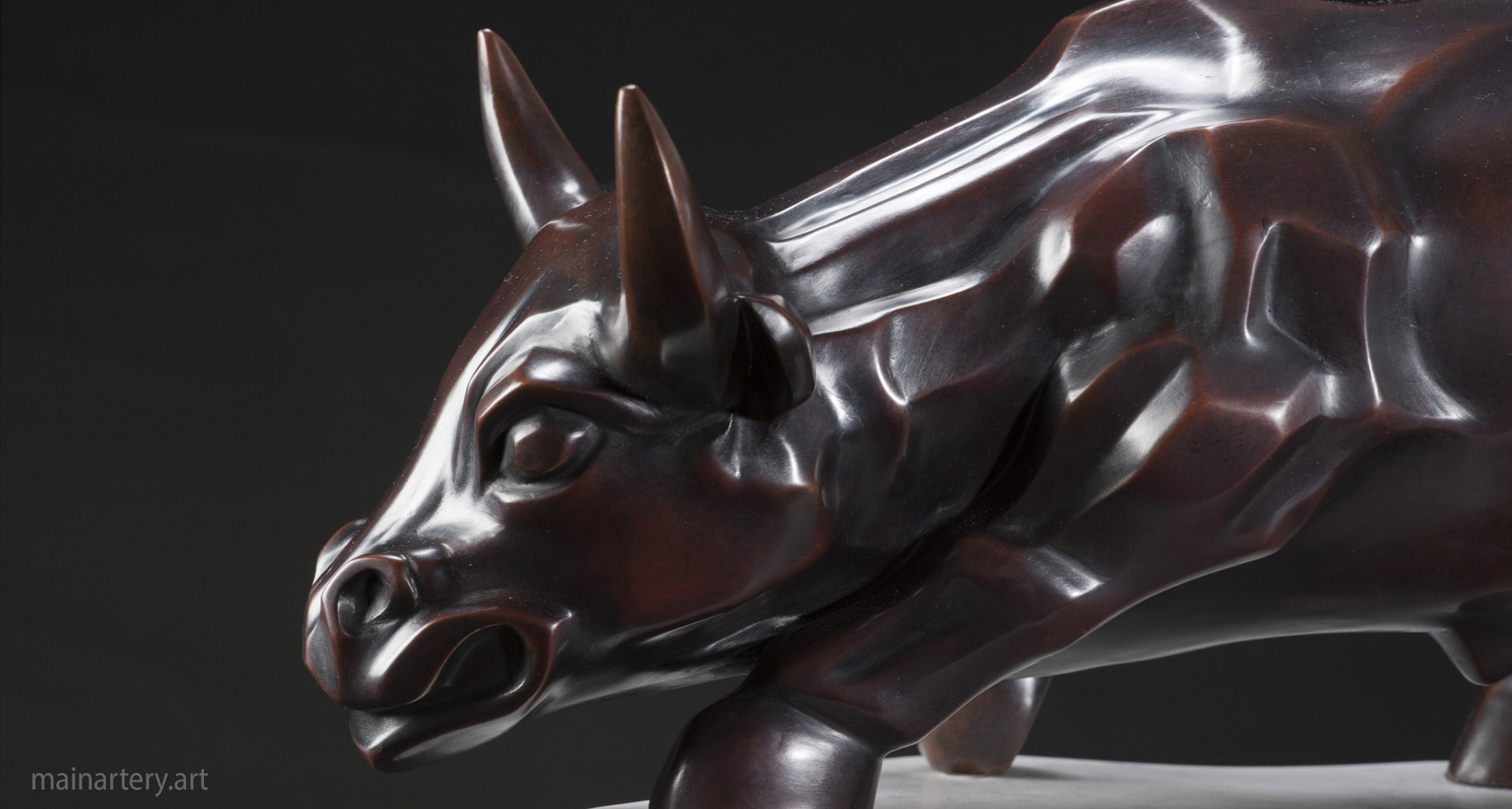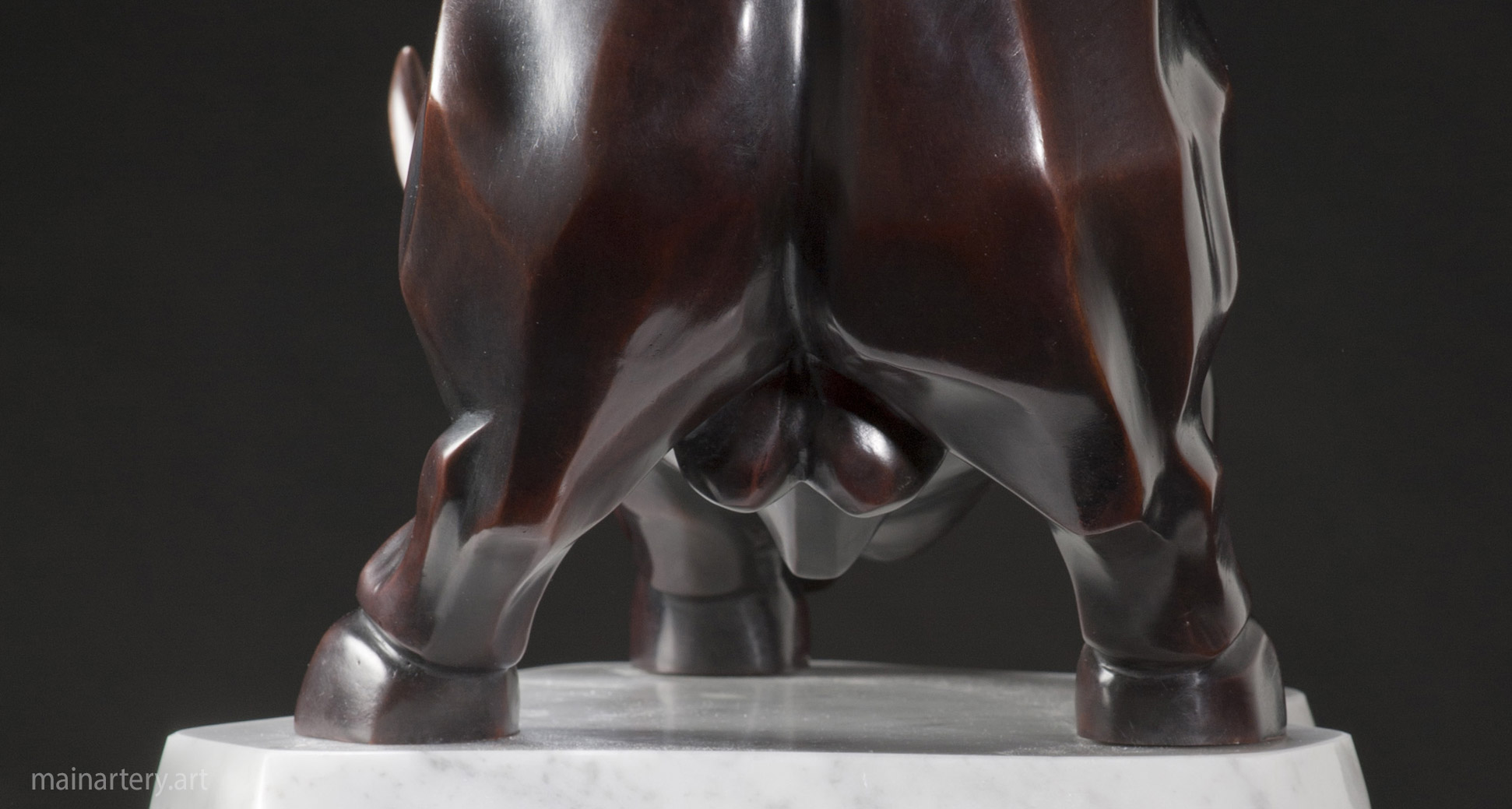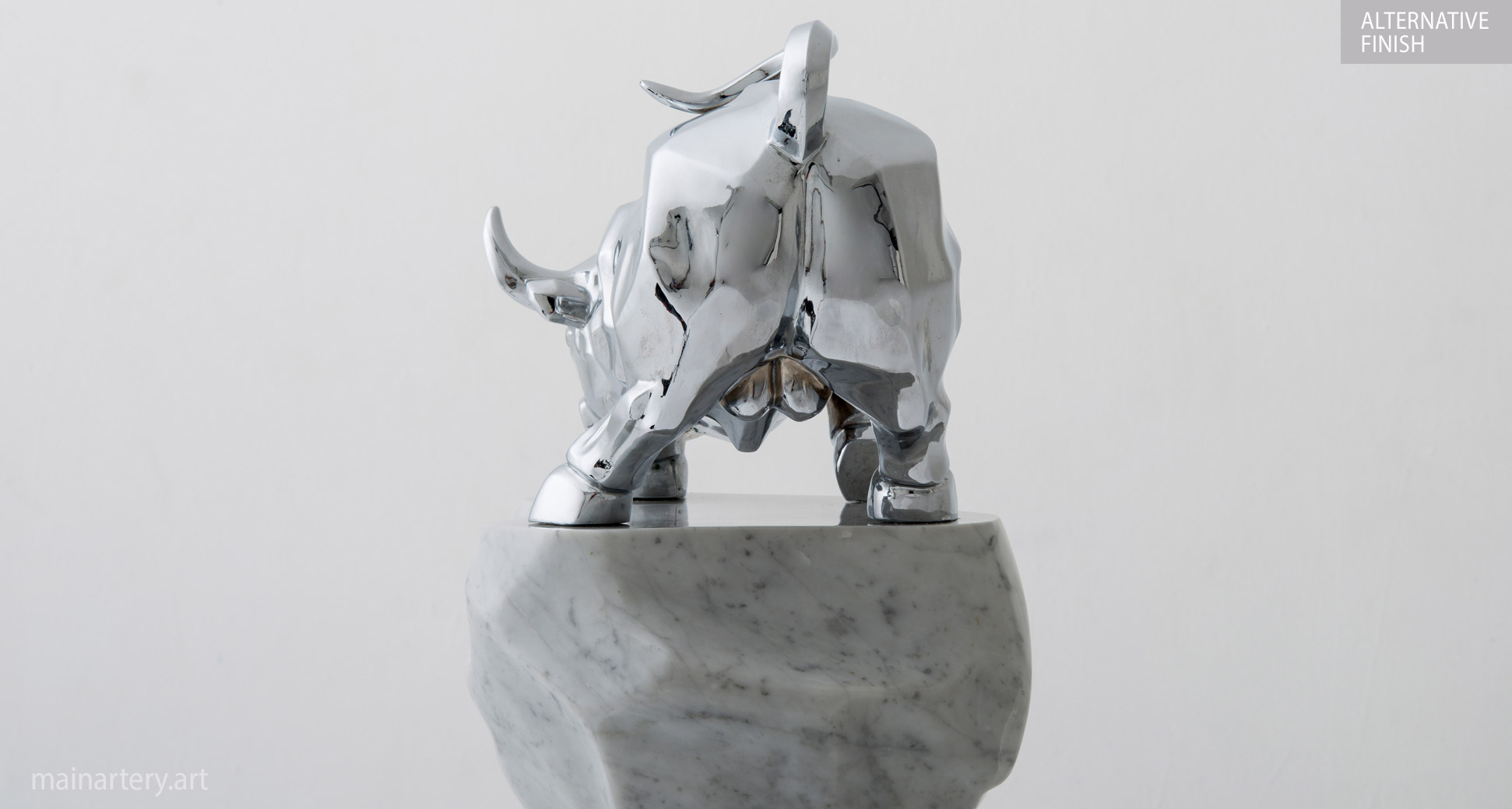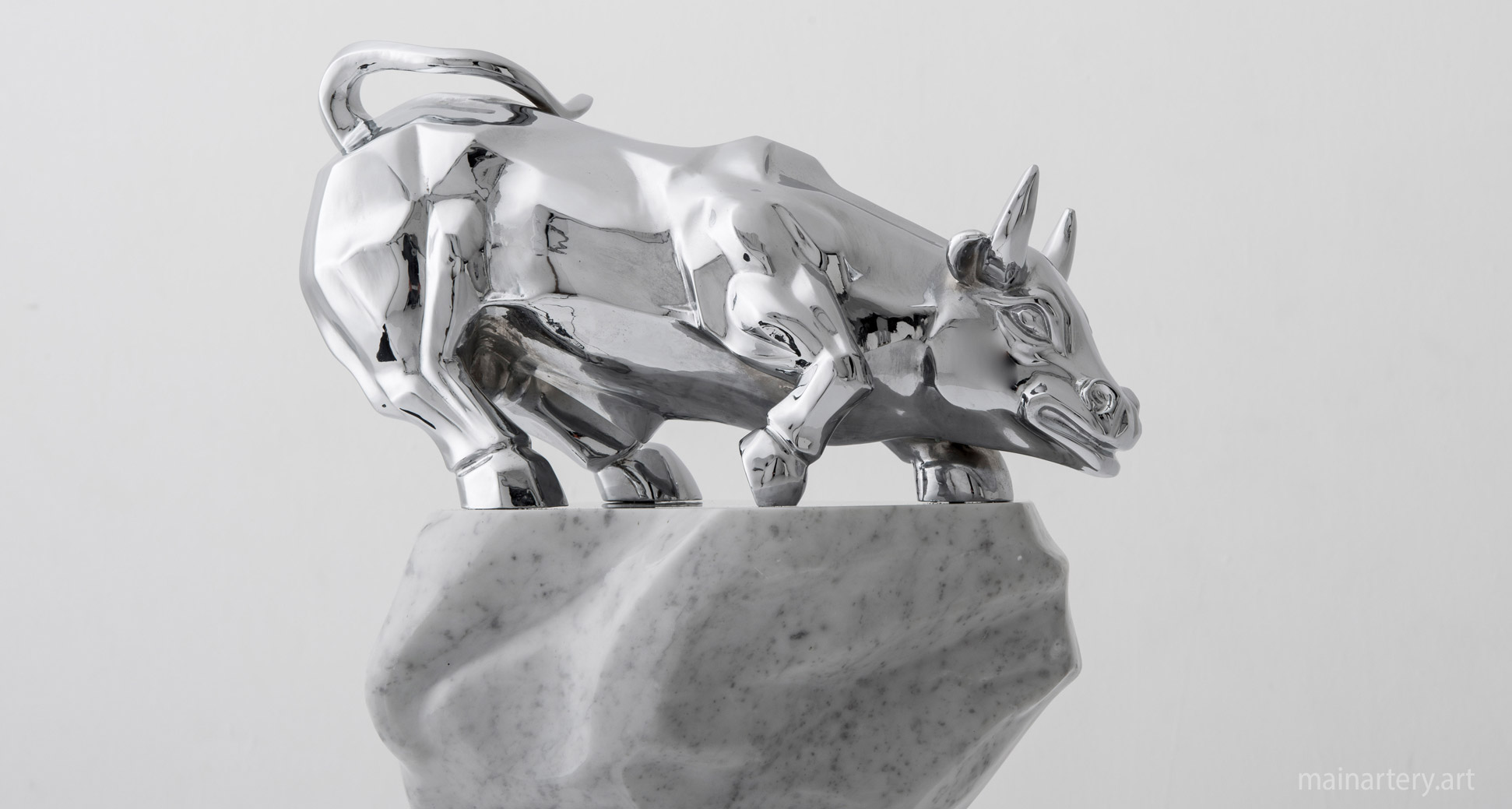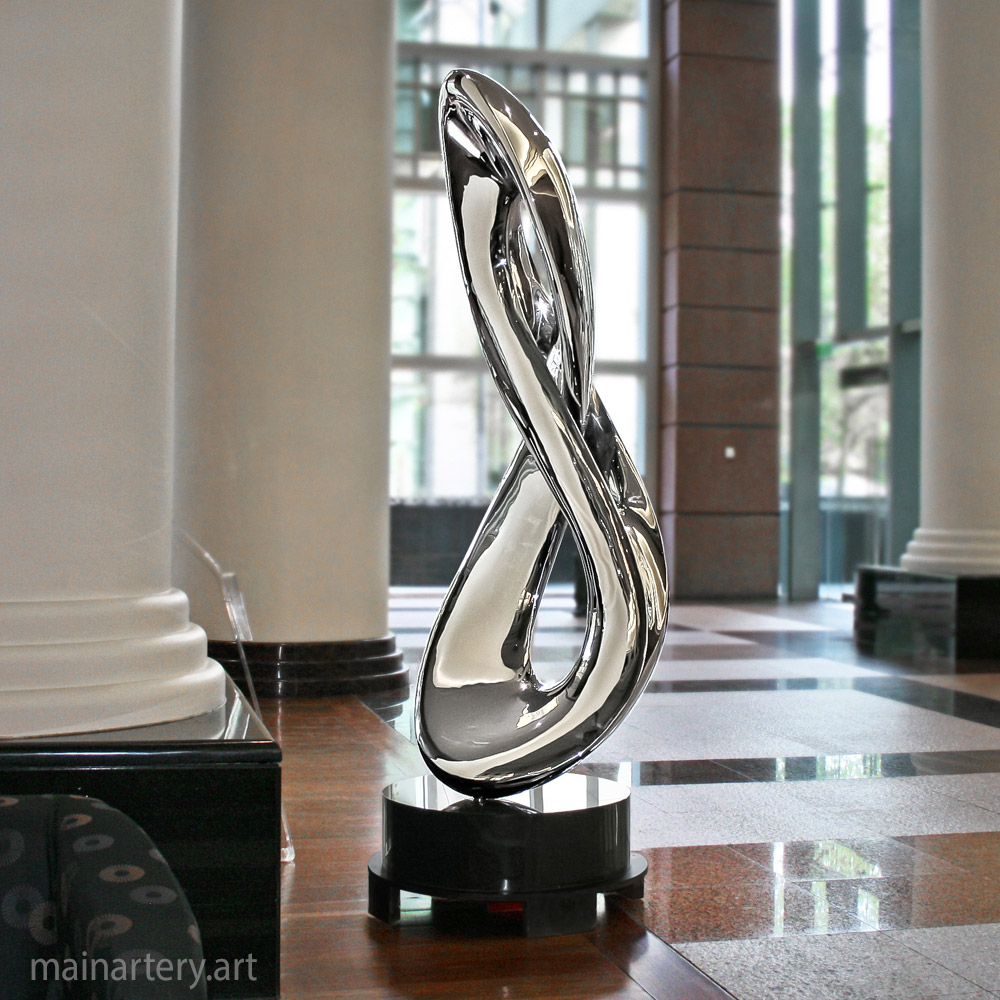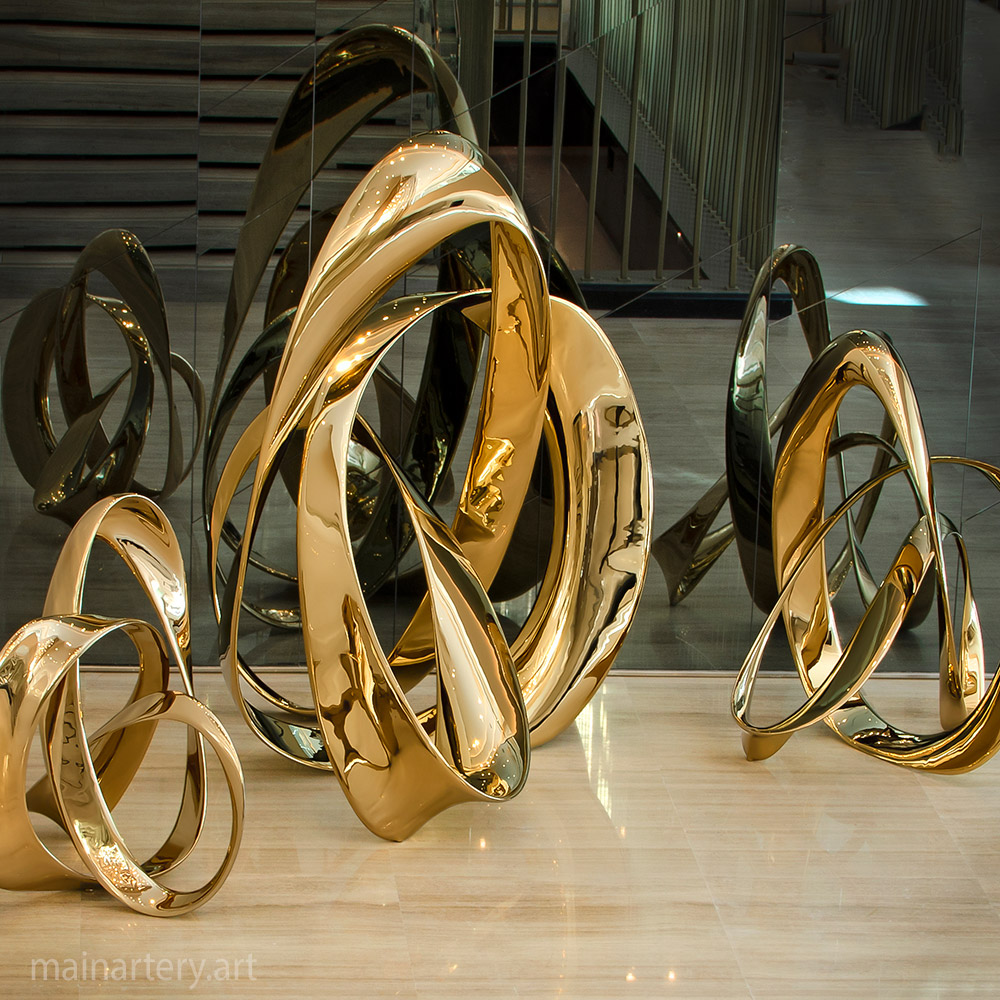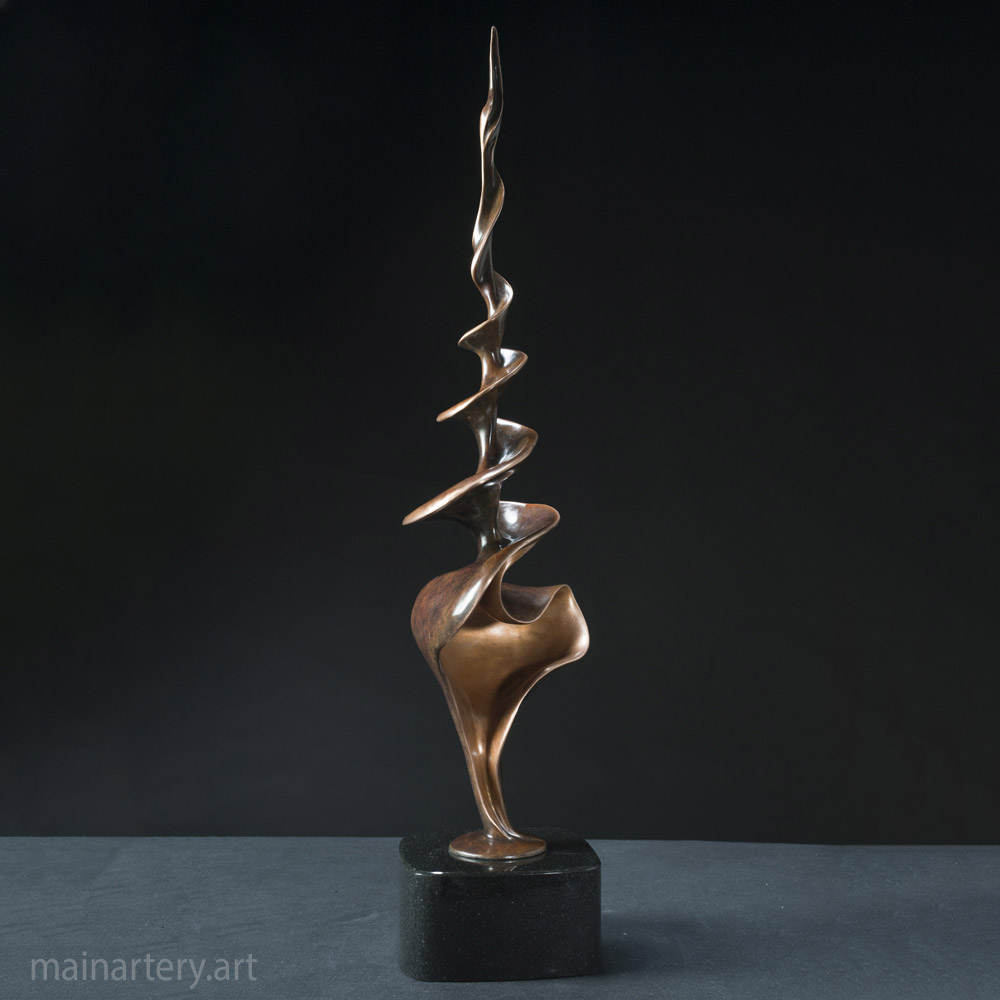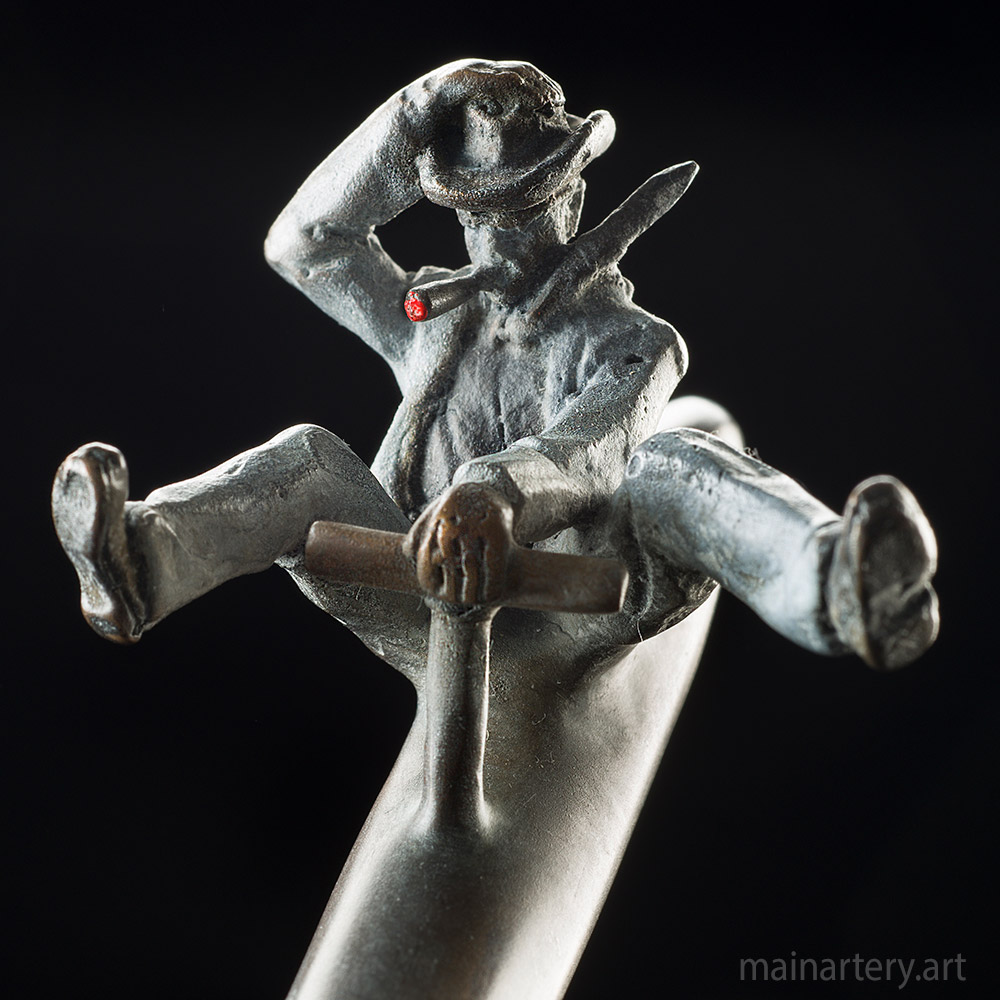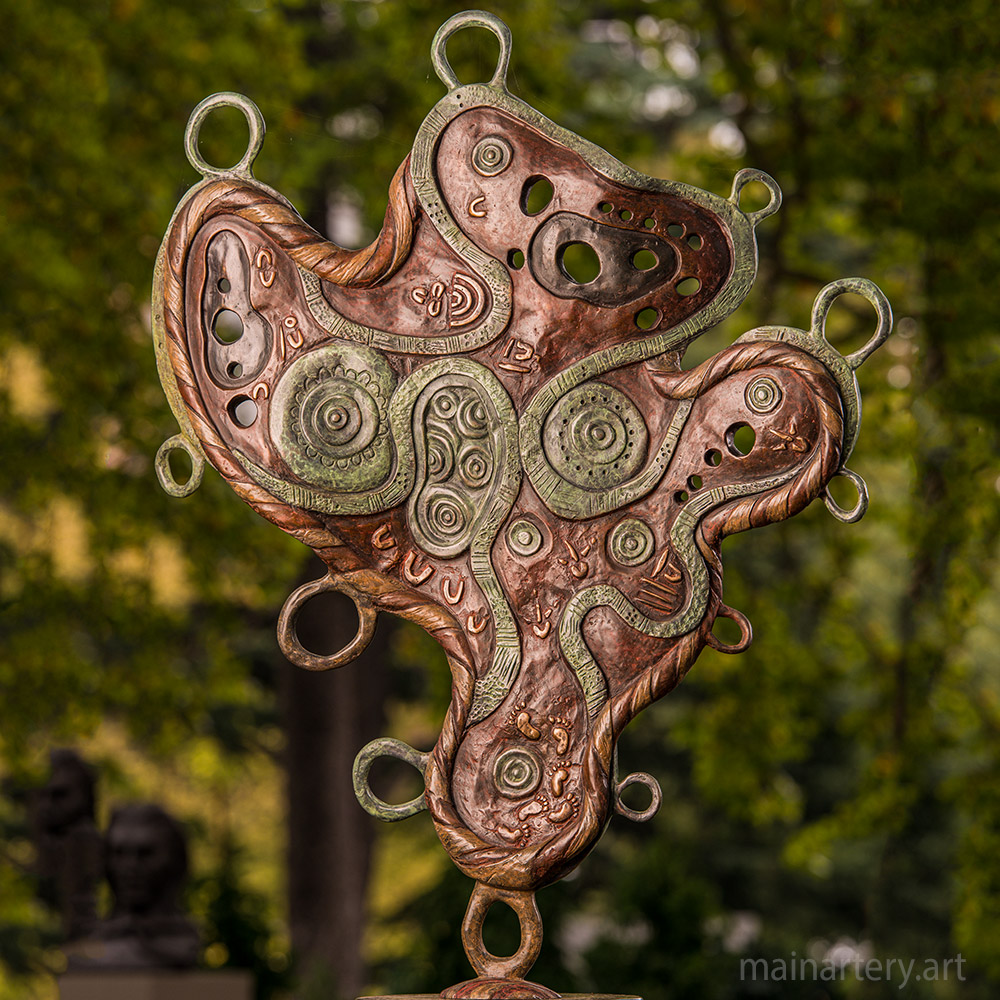Description
Drawing on Arturo Di Modica’s ‘Charging Bull’, Stuart’s ‘Raging Bull’ poses a critical view of the stock market’s role in contemporary Australia, post-Occupy Wall Street. Its aggressive stance – head down, horns thrust forward, facial lines etched in determination – raises questions about whether it represents the volatile nature of market forces or the dominance of the elite. Unlike Di Modica’s version, this sculpture employs cubist elements, offering a modernized, reflective chrome surface where onlookers can see themselves. This piece balances on the fine line between economic conservatism and societal commentary, reimagining a well-known icon for the modern era.
Medium Raging Bull—Dominance Embodied in an Australian Financial Icon
Inspired by the renowned “Charging Bull” of Wall Street fame, Stuart’s “Medium Raging Bull” offers a scaled-down yet equally provocative spin on a global financial symbol. This charging bull bronze statue stands ready to strike, its horns angled forward and muscular flanks taut with anticipation. By blending the classic lines of Arturo Di Modica’s piece with striking cubist segmentation, the sculpture questions how power and unpredictability shape contemporary Australian markets—and perhaps society at large.
A Critique of Capitalist Dynamics—From Occupy to Digital Age
With lowered head and etched lines that betray a tense fury, the bull serves as an emblem of capitalism’s relentless surge. Post-Occupy Wall Street, the bull’s posture can appear more menacing than heroic, reflecting how public sentiment toward unbridled market forces has shifted. As the bull’s reflection distorts across the chrome-like surface, viewers glimpse themselves in its body, compelled to ask whether they are complicit in, or victimized by, financial power games. This interior raging bull bronze sculpture—ideal for lobbies, galleries, or private collections—offers a nuanced commentary: the bull conjures images of success and wealth but also calls to mind market instability and concentrated privilege.
Cubist Elements—A Mirror into the Viewer’s Role
In Di Modica’s original creation, fluid musculature conveyed unstoppable vigor. Here, the sculptor fragments that fluidity using cubist techniques, fusing reflective panels to produce a multi-perspective effect. At every angle, lines break the surface into facets, disorienting the eye. Through these geometric shards, the piece echoes a “broken mirror” phenomenon, capturing Australia’s present-day economic reality: a world of high-speed trading, cryptocurrency speculation, and data-driven volatility. Onlookers see their faces in these mirrored planes, a symbolic statement that each person has a stake in the bull’s forward rush—willing or not.
Though the statue is smaller in scale, its commanding stance remains formidable. One could interpret the bull’s locked gaze as unwavering self-assurance or an unbridled greed—each facet is open to interpretation. The tension lies in the bull’s aura of both fortitude and potential destructiveness. Are we in awe of its power, or do we fear being gored by its unstoppable charge?
In interior spaces, “Medium Raging Bull” disrupts complacency. Its shining surfaces shift under changing light conditions, making each glimpse fresh and unpredictable. By day, sunlight highlights the raw aggression in its stance; by night, artificial illumination reveals hypnotic reflections that blur the lines between the bull’s form and the environment. This interplay intensifies the sculpture’s layered meaning: the bull is more than a stable fixture of old-world finance—it stands at the intersection of technology, speculation, and social commentary.
Ultimately, “Medium Raging Bull” transcends being a mere homage to a famous statue. It’s an evolving statement about capitalism’s place in modern Australian society—a bull that invites the viewer to examine their own position within the system. Through cubist fragmentation and mirrored surfaces, it forces us to consider our role in fueling, challenging, or passively observing a beast that, once unleashed, may act on impulses beyond anyone’s control.

